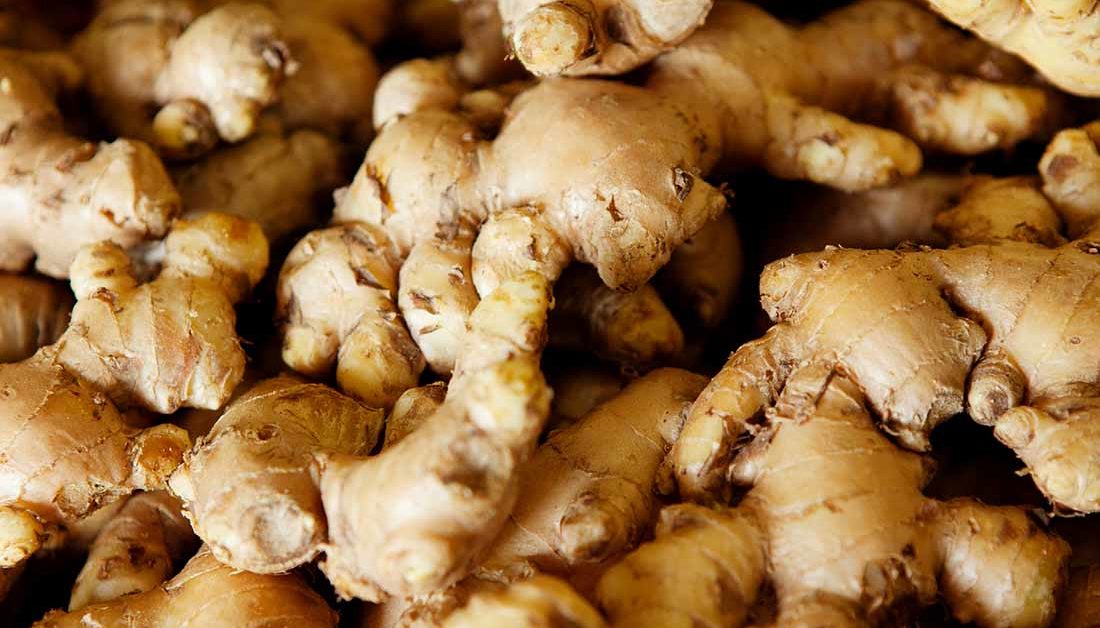
Ginger (Zingiber officinale) is an Asian herb. Ginger spice comes from the roots of the plant. It is used as a spice in food and medicine.
Ginger contains chemicals that can reduce nausea and inflammation. These chemicals appear to work in the stomach and intestines, but they can also help the brain and nervous system to control nausea. Do not eat more than 4 grams of ginger on any given day.
People with heart conditions, diabetes, and gallstones should especially talk to their doctor before taking ginger as a supplement. You should also talk to your doctor about the safety of taking ginger if you are pregnant, breastfeeding, or about to have surgery.
What are the consequences of ginger include
Side effects of ginger include :-
Increased bleeding tendency.
Abdominal discomfort.
Cardiac arrhythmias (if overdose).
Central nervous system depression (if overdose).
Dermatitis (with topical use).
Diarrhea.
Heartburn.
Irritation in the mouth or throat.
Side effects
If taken orally: Ginger is almost safe. It can cause side effects including heartburn, diarrhea, bloating, and general abdominal discomfort. Taking a higher dose of 5 grams daily increases the risk of side effects.
If applied to the skin: Ginger may be safer if used for a short time. It may cause skin irritation in some people.
Pregnancy: Ginger is probably safer when eaten with food. It may be safer if taken orally as a medicine during pregnancy. It may increase the risk of bleeding, so some experts advise against using it near the date of delivery. But it seems safe to use for morning sickness without harm to the baby. Talk to your healthcare provider before using ginger during pregnancy.
Breastfeeding: Ginger is probably safer when eaten with food. There is not enough reliable information to know if taking a large amount of ginger is safe while breastfeeding. Stay on the safe side and avoid use.
Children: Ginger may be safe if taken orally for up to 4 days by teenagers during the onset of menstruation.
Bleeding Problems: Taking ginger can increase the risk of bleeding. We all know that ginger has anti-platelet properties. If so, drinking too much ginger may cause bleeding. It has also been found that when eaten with cloves or garlic, it increases the risk of excessive bleeding.
Heart conditions: High doses of ginger may be more difficult in some heart conditions. Cardiologists recommend that those taking antihypertensive drugs should avoid eating ginger. It is believed that large doses of ginger exacerbate heart conditions and can lead to heart failure.
Surgery: Ginger may delay blood clotting. It may cause more bleeding during and after surgery. Stop using ginger at least 2 weeks before a scheduled surgery.
Heartburn: Heartburn occurs due to acid reflux which causes a burning sensation in the lower chest.
In a single scheduled review of 2020, Trusted Source, 16 out of 109 and reviewed by researchers who tested positive for heartburn were reported.
However, a 2014 Trusted Source article notes that eating 1 g to 1.5 g of dried ginger a day can help treat heartburn.
Digestive effects
National Institute of Integrated Health and Co-ordination (NCCIH) Notes from a Reliable Source Note that ginger may cause:
Abdominal pain, or Stomach upset :- When taken in large quantities, ginger can cause diarrhea. Wondering why? According to experts, it speeds up the digestion of food and feces in the gut and causes disorders that often lead to restlessness and weakness.
Gas and constipation :- According to the National Center for Complementary and Integrative Health, ginger can have side effects, such as gas and constipation. It has been proven that ginger contributes to the digestive system leading to high digestive tract and constipation in some cases.
Diarrhea:- However, according to one 2016 article, ginger can increase diarrhea. This, in turn, can help relieve the symptoms of abdominal pain.
Bleeding:- Ginger can promote bleeding. This is because it inhibits Trusted Source platelet thromboxane. This is the action of platelets that cause blood to clot and clog blood vessels. There is also concern that ginger may interact with blood thinners, such as warfarin, according to the NCCIHTrusted Source. For this reason, people should avoid eating ginger before surgery. Those with a bleeding problem should also consult a doctor before eating any ginger ale.
Other Complexities:- If your doctor advised you to take these drugs, your doctor or pharmacist may already be aware of any possible drug interactions and may be monitoring you for them. Do not start, stop, or change the dose of any medicine before consulting your doctor, health care provider, or pharmacist first.
Ginger can cause hypersensitivity and gallbladder disease
This medicine contains ginger. Do not take African ginger, black ginger, cochin ginger, amber, Jamaican ginger, race ginger, rhizoma zingerberis, rhizome, Sheng Jiang, shokyo, zingibain, zingiber officinale, or zingiberis, if you are allergic to ginger or any of the ingredients contained in this. tree. Keep out of the reach of children. In the event of an overdose, seek medical attention or contact the Toxic Control Center immediately.
Warnings :- If you have a bleeding problem, heart disease, diabetes, high blood pressure (hypertension), or low blood pressure (hypotension), consult your doctor.
Pregnancy and Breastfeeding :-Use in pregnancy is not recommended by German Commission E, however, current data indicate that ginger is safe when used with standard doses of medication.
Oral Side Effects :- There are foods that cause allergies when eaten. This is also called Oral Allergy Syndrome. According to experts, it usually happens by taking ginger, where your mouth starts to itch. This irritability leads to unpleasant taste. In some cases, related allergies include itching and swelling of the mouth.
